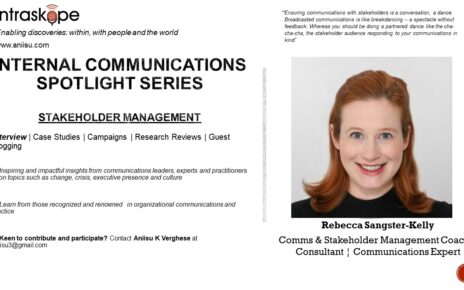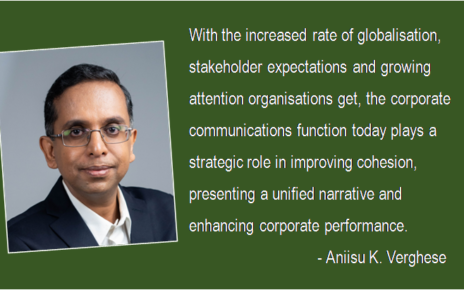Organizations that set up global capability centers mostly focus on getting the location, systems, processes and transitions right. Establishing operations at a global capability center takes many forms. Organizations either set-up the center themselves, take the support of a local vendor to build-operate-transfer the unit or buyout an existing center giving them ready access to talent and infrastructure. Whichever approach is considered, the organization needs to be communicating regularly with the government, planning authorities, staff, design firms, infrastructure agencies, recruitment consultants and a lot more. Communication is fundamental to the organization’s capability center as it serves as an extension of the brand in the local market and requires to maintain a healthy relationship with the parent company.
Involving the communication function early
Irrespective of the phase in which the organization is in while setting up its global capability center, the importance of communication can’t be ignored. From creating the business case (e.g., aligning board members, external stakeholders, governmental bodies etc) to identifying the location (e.g., attractiveness, talent etc); from establishing the legal framework (e.g., governance and regulatory inputs etc) to overseeing the infrastructure (e.g., facility fit-out, space planning etc), there are critical milestones which need to be communicated periodically.
At every step of the journey, the capability center needs to be communicating and managing expectations. By not investing in a communication function at the start of the journey creates challenges for the organization downstream. Keeping communication on the back burner can hurt the brand reputation and result in the organization missing out on the license to operate. The inability to engage staff, uncertainty while dealing with a crisis or indecisiveness when initiating change are potential drawbacks of not leading with communication.
Mapping communication needs at every stage of the journey
Knowing your organization’s priorities and the current level of maturity of the center can help decide the communication function’s approach. Different needs apply at various stages of a capability center’s evolution. At an early stage of maturity, there is a need to communicate the rationale for establishing such a center, why such investments will benefit the company and staff and how the entity will improve the local economy.
When the center matures further and attempts to establish basic processes and systems, the need for communication evolves to bring consistency and reliability in the ways of working. There is a need to attract the right talent and communication is crucial to articulate the value proposition for the center. As more work transitions to the center, it helps to communicate cross-cultural awareness and get staff on the same page.
As the center progresses, the requirement of the communication’s team is to build platforms for collaboration and improve cross-functional engagement. The focus at the center is to drive operational efficiencies and demonstrate increased value. Learning from best practices helps immensely at this stage. This is where local intelligence and relationships play a part.
When the unit evolves to be a research-led team driving change for the business, there is an increased need to build centers of excellence that can spawn other similar units worldwide. Here the role of the communication team is to crowd source ideas, harvest knowledge and offer communication practices as services or products.
Whichever stage the organization is in, the common communication theme that runs through all these stages is the need for assimilating the company’s culture at the global capability center. Without this, the center will always fall short in engaging employees, generating value and driving change.
Having a seat at the table
Tapping the power of communication can help give global capability centers the extra edge while engaging with relevant stakeholders. Having a seat at the table can enable the communication function to champion business priorities, make effective decisions and provide timely counsel to leaders. Global capability centers can benefit immensely by building and involving communication teams early in the journey.
Organizations that ignore the important role of communication teams in the evolution of their global capability centers miss the much needed professionalism, clarity and consistency.
Have experience with global capability centers? Does this resonate? Keen to hear your views.
Interested in similar articles? Look up my blog www.aniisu.com



